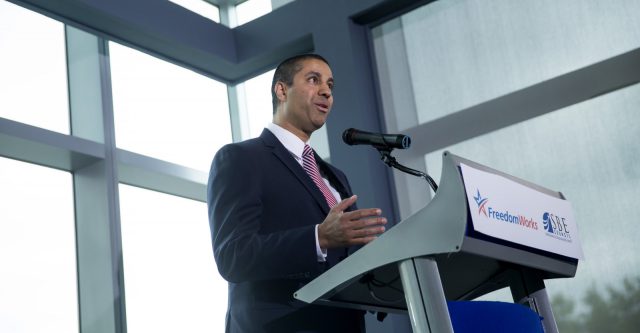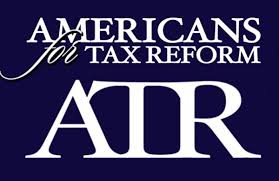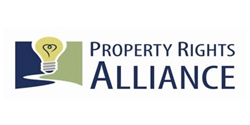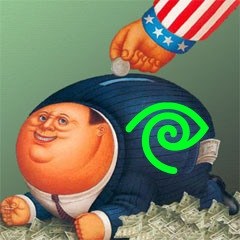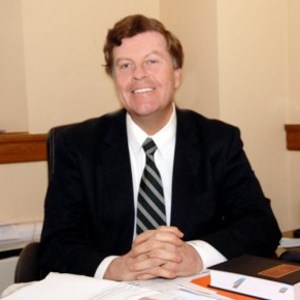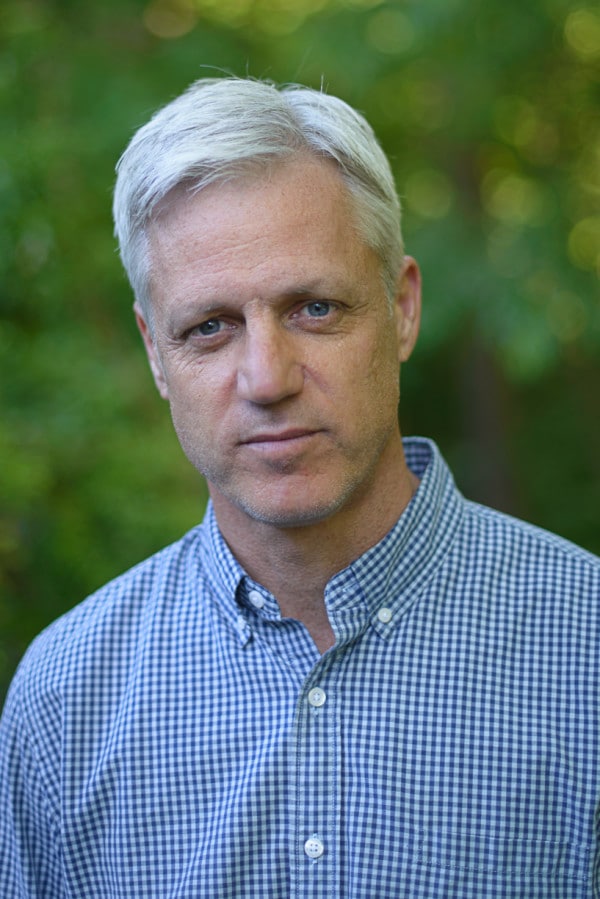| STATE |
STATUTE |
SPONSOR |
SUMMARY |
STATUS |
|
Alaska
|
AK H 277
|
Representative Kawasaki (D)
|
Making certain actions by broadband internet service providers unlawful acts or practices under the Alaska Unfair Trade Practices and Consumer Protection Act.
|
Failed
|
|
Alaska
|
AK S 160
|
Senator Begich (D)
|
Making certain actions by broadband internet service providers unlawful acts or practices under the Alaska Unfair Trade Practices and Consumer Protection Act.
|
Failed
|
|
California
|
CA S 460
|
Senator De Leon (D)
|
Prohibits internet service providers in the state from taking certain actions regarding the accessing of content on the internet by customers. Ensures that public purpose program funding is expended in a manner that will maximize internet neutrality and ensure the fair distribution of services to low-income individuals and communities. Establishes a process whereby an internet service provider in the state is required to certify to the commission that it is providing broadband internet access service.
|
Pending
|
|
California
|
CA S 822
|
Senator Wiener (D)
|
States the intent of the Legislature to enact legislation to effectuate net neutrality in California utilizing the state’s regulatory powers and to prevent internet service providers from engaging in practices inconsistent with net neutrality.
|
Enacted
|
|
Colorado
|
CO H 1312 |
Representative Hansen (D)
|
Concerns the protection of the open internet; disqualifies an internet service provider from receiving high cost support mechanism money or other money received to finance broadband deployment if the internet service provider engages in certain practices that interfere with the open internet and requiring an internet service provider that engages in such practices to refund any such money received.
|
Failed
|
|
Connecticut
|
CT H 5260
|
Representative Winkler (D)
|
Requires state contractors to adopt a net neutrality policy; requires Internet service providers that are state contractors to adopt a net neutrality policy.
|
Failed
|
|
Connecticut
|
CT S 2
|
Senator Duff (D)
|
Requires internet service providers to register and pay registration fees and requires the Public Utilities Regulatory Authority to apply net neutrality principles to internet service providers and enforce such principles with civil penalties.
|
Failed
|
|
Georgia
|
GA S 310
|
Senator Jones (D)
|
Provides that any internet service provider engaged in the provision of broadband internet access service shall publicly disclose accurate information regarding the network management practices, performance, and commercial terms of its broadband internet access service; prohibits any internet service provider from blocking lawful content, applications, services, and nonharmful devices.
|
Failed
|
|
Georgia
|
GA H 1066
|
Representative Wallace (D)
|
Relates to state purchasing, so as to prohibit the state from contracting with companies that do not provide a certification as to net neutrality; provides for legislative findings and declarations; provides for definitions; provides the elements of net neutrality.
|
Failed
|
|
Hawaii
|
HI S 2088
|
Senator Chang (D)
|
Requires a provider of broadband internet access services to be transparent with network management practices, performance and commercial terms of its broadband internet access services. Prohibits a provider of broadband internet access services from blocking lawful websites, impairing or degrading lawful internet traffic, engaging in paid prioritization, or interfering with or disadvantaging users of broadband internet access services.
|
Failed
|
|
Hawaii
|
HI H 1995
|
Representative Ing (D)
|
Regulates broadband internet service providers to ensure a free and open internet. Establishes a task force to examine the costs and benefits of creating a state-owned public utility company to provide broadband internet service. Executive order passed on 2/5/18 requiring all state agencies to contract with ISPs that adhere to net neutrality principles.
|
Failed
|
|
Hawaii
|
HI H 2256
|
Representative Ohno (D)
|
Requires a provider of broadband internet access services to be transparent with network management practices, performance, and commercial terms of its broadband internet access services. Prohibits a provider of broadband internet access services from blocking lawful websites, impairing or degrading lawful internet traffic, engaging in paid prioritization, or interfering with or disadvantaging users of broadband internet access services. Requires an applicant of a broadband-related permit seeking a state-granted or county-granted right to attach small cell or other broadband wireless communication devices to utility poles to comply with certain practices.
|
Failed
|
|
Hawaii:
|
HI S 2644
|
Senator Baker (D)
|
Companion legislation to H. 2256.
|
Failed
|
|
Illinois
|
IL S 2816
|
Senator Cullerton (D)
|
Provides that no state agency may contract with an internet service provider for the provision of broadband internet access service unless that provider certifies, under penalty of perjury, that it will not engage in specified activities concerning internet access and use.
|
Pending
|
|
Illinois
|
IL H 5094
|
Representative Andrade (D)
|
Amends the Telecommunications Article of the Public Utilities Act; requires broadband providers to publicly disclose accurate information regarding network management practices, performance, and commercial terms of its broadband internet access service sufficient for consumers to make informed choices concerning the use of the service; restricts broadband providers from blocking lawful content, applications, services, or non-harmful devices subject to reasonable network management practices.
|
Pending
|
|
Idaho
|
ID H 425
|
Representative Jordan (D)
|
Outlines duties, unlawful acts and requirements for disclosing certain information for internet service providers.
|
Failed
|
|
Iowa
|
HF 2287
|
Representative Liz Bennett (D)
|
Requires a communications service provider publish a provider’s reasonable network management practices, performance, and commercial terms of its broadband service and prohibits communications service providers from blocking lawful content, applications, services, or nonharmful devices, unless pursuant to a reasonable network management practice. The bill defines “reasonable network management practice” to mean a practice that is primarily used for and tailored to achieving a legitimate technical network management purpose
|
Failed
|
|
Kansas
|
KS H 2682
|
Representative Parker (D)
|
Prohibits state contracts with internet service providers that do not adhere to net neutrality principles.
|
Failed
|
|
Maryland
|
MD H 1655
|
Delegate Reznik (D)
|
Specifies the circumstances under which a broadband internet access service provider may handle certain customer personal information in a certain manner; establishes a mechanism through which a broadband internet access service provider may obtain customer consent to have certain personal information handled in a certain manner; prohibits a broadband internet access service provider from taking certain actions based on whether a customer has given consent.
|
Failed
|
|
Maryland
|
MD H 1654
|
Delegate Frick (D)
|
Specifies the circumstances under which a broadband internet access service provider may handle certain customer personal information in a certain manner; establishes a mechanism through which a broadband internet access service provider may obtain customer consent to have certain personal information handled in a certain manner.
|
Failed
|
|
Massachusetts
|
MA S 2610
|
Senate Committee on Ways and Means
|
The committee on Ways and Means to whom was referred the Senate Bill to protect consumers by prohibiting blocking, throttling, or paid prioritization in the provision of internet service (Senate, No. 2336) (also based on Senate, No. 2376),– reports, recommending that the same ought to pass with an amendment substituting a new draft entitled “An Act promoting net neutrality and consumer protection” (Senate, No. 2610).
|
Pending
|
|
Massachusetts
|
MA S 2263
|
Senator Creem (D)
|
Establishes a Special Senate Committee on Net Neutrality and Consumer Protection.
|
Adopted 1/18/2018
|
|
Massachusetts
|
MA H 4222
|
Representative Rogers (D)
|
Provides for net neutrality and consumer protection.
|
Pending
|
|
Massachusetts
|
H4151
|
Representative Vargas (D)
|
Legislation to assure net neutrality by internet service providers and the equal treatment of data on the internet, and to prohibit discrimination or charge disparity of user, content, website, platform, application, type of attached equipment or method of communication. Telecommunications, Utilities and Energy.
|
Pending
|
|
Massachusetts
|
MA 2336
|
Senator L’Italien (D)
|
A person or entity engaged in the provision of broadband internet access service in Commonwealth of Massachusetts shall not: Block lawful content, applications, services or nonharmful devices; impair or degrade lawful internet traffic; engage in paid prioritization.
|
Pending
|
|
Minnesota
|
MN S 2880
|
Senator Latz (D)
|
Relates to broadband service. Prohibits certain activities by Internet service providers serving Minnesota customers and those under contract to the state or political subdivisions.
|
Failed
|
|
Minnesota
|
MN H 3033
|
Representative Thissen (D)
|
Internet service providers serving Minnesota customers and those under contract to the state or political subdivisions prohibited from certain activities.
|
Failed
|
|
Minnesota
|
MN S 3968
|
Senator Bigham (D)
|
A bill for an act relating to broadband service; prohibiting certain activities by Internet service providers serving Minnesota customers and those under contract to the state or political subdivisions.
|
Failed
|
|
Minnesota
|
MN H 4411
|
Representative Hillstrom (D)
|
Relates to broadband service; prohibits certain activities by Internet service providers serving Minnesota customers and those under contract to the state or political subdivisions.
|
Failed
|
|
Missouri
|
MO H 1994
|
Representative Ellebracht (D)
|
Establishes provisions for net neutrality.
|
Failed
|
|
Nebraska
|
NE L 856
|
Senator Morfeld (D)
|
Adopts the internet Neutrality Act; changes communications provider requirements under the Nebraska Telecommunications Regulation Act; changes financial assistance provisions relating to the Nebraska Internet Enhancement Fund.
|
Failed
|
|
New Jersey
|
NJ A 2131
|
Assemblymember Chiaravalloti (D)
|
Directs Board of Public Utilities to prohibit internet service providers from installing broadband telecommunications infrastructure on certain poles or underground facilities unless internet service providers adhere to principle of net neutrality.
|
Pending
|
|
New Jersey
|
NJ A 1767
|
Assemblymember Quijano (D)
|
The bill directs the Division of Consumer Affairs to establish the “New Jersey internet Service Provider Registry,” and promulgate regulations requiring all ISPs to affirmatively disclose to the division any prioritization policies, agreements with content providers for prioritization, and the material terms for their agreements with their customers.
|
Pending
|
|
New Jersey
|
NJ A 2132
|
Assemblymember Chiaravalloti (D)
|
Prohibits awarding of public contracts to internet service providers, unless internet service providers adhere to principle of net neutrality.
|
Pending
|
|
New Jersey
|
NJ A 2139
|
Assemblymember Chiaravalloti (D)
|
Requires cable television company to commit to principle of net neutrality as condition of approval of applications for municipal consent to system-wide franchise.
|
Pending
|
|
New Jersey
|
NJ S 2458
|
Sen. Cryan (D)
|
Directs BPU to prohibit Internet service providers from installing broadband telecommunications infrastructure on certain poles or underground facilities unless Internet service providers adhere to principle of “net neutrality.”
|
Pending
|
|
New Jersey
|
NJ A 1767
|
Assemblymember Quijano (D)
|
Establishes New Jersey Net Neutrality Act.
|
Pending
|
|
New Jersey
|
NJ A 2131
|
Assemblymember Chiaravalloti (D)
|
Directs Board of Public Utilities to prohibit internet service providers from installing broadband telecommunications infrastructure on certain poles or underground facilities unless internet service providers adhere to principle of “net neutrality.”
|
Pending
|
|
New Jersey
|
NJ S 1577
|
Senator Cruz-Perez (D)
|
Establishes the New Jersey Net Neutrality Act.
|
Pending
|
|
New Jersey
|
NJ S 1802
|
Senator Turner (D)
|
Prohibits awarding of public contracts to internet service providers, unless internet service providers adhere to principle of net neutrality.
|
Pending
|
|
New Mexico
|
NM H 95
|
Representative McCamley (D)
|
Relates to trade practices; enacts a section of the unfair practices act to prohibit and make subject to penalty certain acts for internet service providers.
|
Failed
|
|
New Mexico
|
NM S 39
|
Senator Morales (D)
|
Prohibited Broadband Internet Service Acts, Relates to trade practices; enacts a section of the unfair practices act to prohibit and make subject to penalty certain acts.
|
Failed
|
|
New York
|
NY S 8321
|
Senator Hoylman (D)
|
Provides regulatory control of internet service providers by the public service commission, requires internet neutrality and relates to the placement of equipment on utility poles.
|
Pending
|
|
New York
|
NY S 7175
|
Senator Parker (D)
|
Amends the State Finance Law; requires that a state agency, governmental agency or political subdivision, or public benefit corporation or municipality only contract with net neutral sources of internet services; establishes a revolving fund for the establishment of municipal internet service providers; makes an appropriation.
|
Pending
|
|
New York
|
NY S 7183
|
Senator Carlucci (D)
|
Relates to instituting internet service neutrality; provides the Public Service Commission with jurisdiction over monitoring internet service providers; requires a certification for internet service neutrality in certain state contracts.
|
Pending
|
|
New York
|
NY A 9057
|
Assem. Cahill (D)
|
Relates to state contracts being only with internet service providers compliant with net neutrality and establishes a revolving fund for the establishment of municipal internet service providers; appropriates $250 million therefor.
|
Pending
|
|
New York
|
A8882A
|
Assem. Fahy (D)
|
Relates to instituting internet service neutrality; provides the Public Service Commission with jurisdiction over monitoring internet service providers; requires a certification for internet service neutrality in certain state contracts.
|
Pending
|
|
North Carolina
|
S 736
|
Senator Jay Chaudhuri (D)
|
Preserves an open internet in the state; appropriates funds for statewide broadband access.
|
Pending
|
|
North Carolina
|
H 1016
|
Representative Grier Martin (D)
|
Establishes procedures for procurement of broadband services by state and local government entities to support the principles of net neutrality.
|
Pending
|
|
Oklahoma
|
OK S 1543
|
Senator Pittman (D)
|
Relates to Corporation Commission; creates the Oklahoma Net Neutrality Protection Act; defines terms; prohibits purchase of internet services from certain persons in certain circumstances; establishes procedures for the purchase of internet services through certain contracts; establishes grievance procedures for certain contracts; excludes certain contracts from act; creates the Municipal Internet Service Provider Revolving Loan Fund; appropriates certain amount to fund.
|
Failed
|
|
Pennsylvania
|
PA H 2062
|
Rep. Wheatley (D)
|
Prohibits Internet service providers from engaging in practices which curtail equal access to lawful Internet content, applications, services or use of nonharmful devices; imposes civil penalties.
|
Pending
|
|
Oregon
|
OR HB 4155
|
Representative Williamson (D)
|
Prohibits public bodies from contracting with broadband Internet access service providers that engage in certain network management activities based on paid prioritization, content blocking or other discrimination
|
Enacted
|
|
Rhode Island
|
RI H 7076
|
Representative Kennedy (D)
|
Would require internet service providers to follow internet service neutrality requirements.
|
Pending
|
|
Rhode Island
|
RI S 2008
|
Senator DiPalma (D)
|
Would require internet service providers to follow internet service neutrality requirements.
|
Pending
|
|
Rhode Island
|
RI H 7422
|
Representative Regunberg (D)
|
Would establish the Net Neutrality Protection Act of 2018, prohibiting unreasonable interference with or unreasonably disadvantaging end users’ ability to select, access, and use broadband internet access service or the lawful internet content, applications, services, or devices of their choice, or edge providers’ ability to make lawful content, applications, services, or devices available to end users. This act would take effect upon passage.
|
Pending
|
|
South Carolina
|
SC H 4614
|
Representative McKnight (D)
|
Enacts the South Carolina net neutrality preservation act; defines relevant terms; provides that a telecommunications or internet service provider engaged in the provision of broadband internet access service publicly shall disclose accurate information regarding the network management practices, performance, and commercial terms of its broadband internet access services sufficient for consumers to make informed choices regarding use of such services and for content, application, service, and device.
|
Pending
|
|
South Carolina
|
SC H 4706
|
Representative Smith (D)
|
Enacts the net neutrality protection and maintenance act; defines relevant terms; provides that a telecommunications or internet service provider engaged in the provision of broadband internet access service publicly shall disclose accurate information regarding the network management practices, performance, and commercial terms of its broadband internet access services sufficient for consumers to make informed choices regarding use of these services.
|
Pending
|
|
Tennessee
|
TN H 1755
|
Representative Clemmons (D)
|
If an internet service provider contracts to supply internet service to a state governmental entity or submits a response to contract to supply internet service to a state governmental entity, is discovered to have knowingly violated this chapter in the performance of the contract, the chief procurement officer shall declare that person to be prohibited from contracting for or submitting a response for any contract to supply goods or services to a state governmental entity for a period of one year from the date of discovery of the violation of this chapter
|
Failed
|
|
Tennessee
|
TN S 1756
|
Senator Harris (D)
|
Companion bill.
|
Failed
|
|
Tennessee
|
TN H 2405
|
Representative Thompson (D)
|
Relates to telecommunications; creates a task force of the General Assembly to study the effects of overturning the FCC’s net neutrality rules.
|
Failed
|
|
Tennessee
|
TN S 2449
|
Senator Harris (D)
|
Companion bill
|
Failed
|
|
Tennessee
|
HB2253, SB2183
|
Senator Harris (D); Representative Clemmons (D)
|
Telecommunications – As introduced, requires any internet service provider that provides internet to the state to provide a net neutral internet service.
|
Failed
|
|
Virginia
|
VA S 948
|
Senator Wexton (D)
|
A provider of broadband services shall be prohibited from offering or renewing services to consumers within any locality in the commonwealth in which certain media is throttled, blocked, or prioritization on the basis of its content, format, host address or source.
|
Failed
|
|
Virginia
|
HB705
|
Delegate Carter (D)
|
A provider of broadband services shall be prohibited from offering or renewing services to consumers within any locality in the commonwealth in which certain media is throttled, blocked, or prioritization on the basis of its content, format, host address or source. Virginia house panel kills ‘net neutrality’ bill on 2/6/18.
|
Failed
|
|
Vermont
|
VT H 680
|
Representative Stevens (D)
|
An act relating to protecting consumers and promoting an open internet in Vermont.
|
Failed
|
|
Vermont
|
VT S 289
|
Senator Lyons (D)
|
Would enact the Vermont Broadband Internet Privacy Act, providing for the protection of consumers and promoting an open internet in Vermont.
|
Enacted
|
|
Washington
|
WA H 2282
|
Representative Hansen (D)
|
An act relating to protecting an open internet in Washington state.
|
Enacted
|
|
Washington
|
WA S 6423
|
Senator Ranker (D)
|
Establishes a process whereby an internet service provider certifies to the commission that it is providing broadband internet access service in accordance with the requirements similar to net neutrality.
|
Failed
|
|
Washington
|
WA H 2284
|
Representative Smith – R
|
An act relating to protecting an open internet in Washington state.
|
Failed
|
|
West Virginia
|
WV S 396
|
Senator Ojeda (D)
|
West Virginia Net Neutrality Act. A person engaged in the provision of broadband internet access service in this state shall publicly disclose accurate information regarding the network management practices, performance, and commercial terms. A person engaged in the provision of broadband internet service in this state, insofar as such a person is so engaged, may not: block, degrade, paid prioritize, block devices.
|
Failed
|
|
West Virginia
|
WV H 4399
|
Delegate Lovejoy (D)
|
Bill to amend the Code of West Virginia, 1931 all relating to net neutrality for state government; requiring the state to utilize net neutral internet services and associated activities; and providing exceptions thereto.
|
Failed
|
|
Wisconsin
|
AB909
|
Representative Brostoff (D)
|
The bill adheres ISPs to follow net neutrality principles and requires the Department of Agriculture, Trade and Consumer Protection to create and implement a complaint process for responding to violations of the bill’s provisions.
|
Pending
|
|
Wisconsin
|
SB743
|
Senator Larson (D)
|
Companion bill of AB909
|
Pending
|
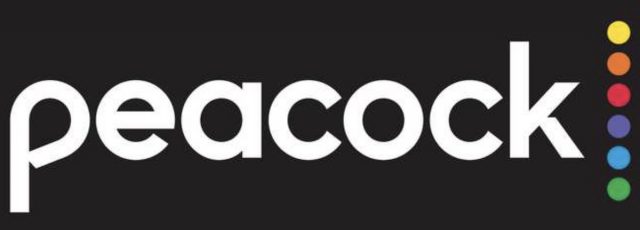 Comcast is planning to debut its new streaming TV platform under the NBC “Peacock” brand next April with a lineup of original shows starring well-known talent including Alec Baldwin, Demi Moore, Christian Slater, and Ed Helms.
Comcast is planning to debut its new streaming TV platform under the NBC “Peacock” brand next April with a lineup of original shows starring well-known talent including Alec Baldwin, Demi Moore, Christian Slater, and Ed Helms. Peacock’s subscription model is designed to protect Comcast’s cable TV revenue. For existing Comcast cable TV customers, giving ad-supported subscriptions away for free may add to the value proposition of keeping a cable TV subscription. By charging subscription fees to everyone else, Comcast is not ‘giving away the store for free.’ If it did, it could upset other pay television companies that are facing ever-rising retransmission consent fees and programming costs for Comcast/NBC-owned TV stations and cable networks including CNBC, MSNBC, and the USA Network.
Peacock’s subscription model is designed to protect Comcast’s cable TV revenue. For existing Comcast cable TV customers, giving ad-supported subscriptions away for free may add to the value proposition of keeping a cable TV subscription. By charging subscription fees to everyone else, Comcast is not ‘giving away the store for free.’ If it did, it could upset other pay television companies that are facing ever-rising retransmission consent fees and programming costs for Comcast/NBC-owned TV stations and cable networks including CNBC, MSNBC, and the USA Network. BATTLESTAR GALACTICA
BATTLESTAR GALACTICA PUNKY BREWSTER (pilot)
PUNKY BREWSTER (pilot) Frasier
Frasier Psych
Psych Bourne franchise
Bourne franchise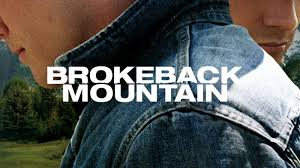 Fast & Furious
Fast & Furious

 Subscribe
Subscribe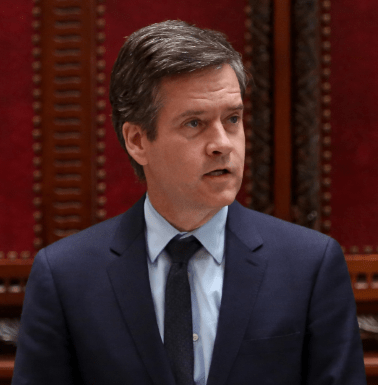
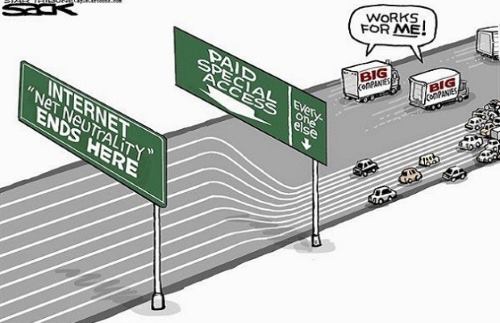 Electing Democrats to state legislatures could alter the influence of corporate-backed groups like the American Legislative Exchange Council (ALEC), a group that facilitates corporations interested in writing bills companies hope will become law. Having a Democratic governor might also help protect initiatives like municipal broadband, which has been under assault by many Republican-controlled state legislatures with state laws attempting to dissuade or strangle community internet services from threatening large phone and cable company duopolies.
Electing Democrats to state legislatures could alter the influence of corporate-backed groups like the American Legislative Exchange Council (ALEC), a group that facilitates corporations interested in writing bills companies hope will become law. Having a Democratic governor might also help protect initiatives like municipal broadband, which has been under assault by many Republican-controlled state legislatures with state laws attempting to dissuade or strangle community internet services from threatening large phone and cable company duopolies.
